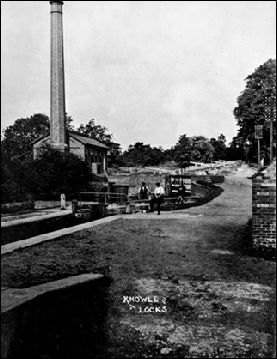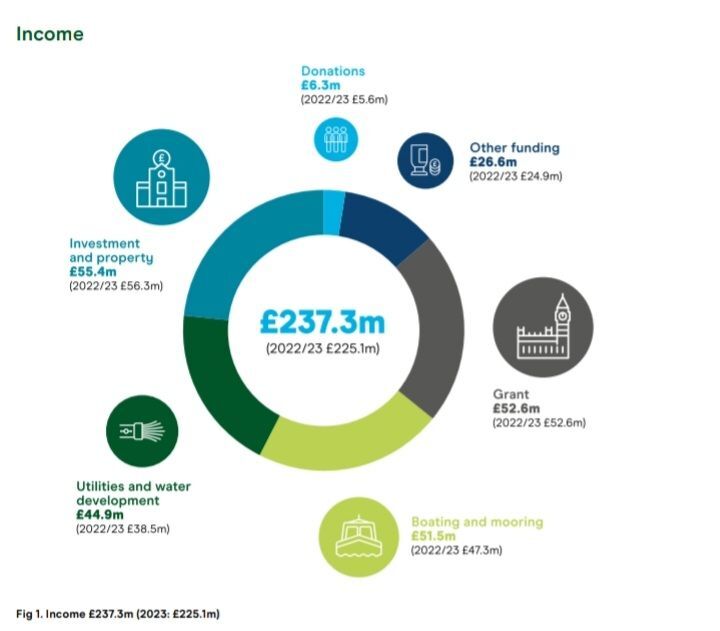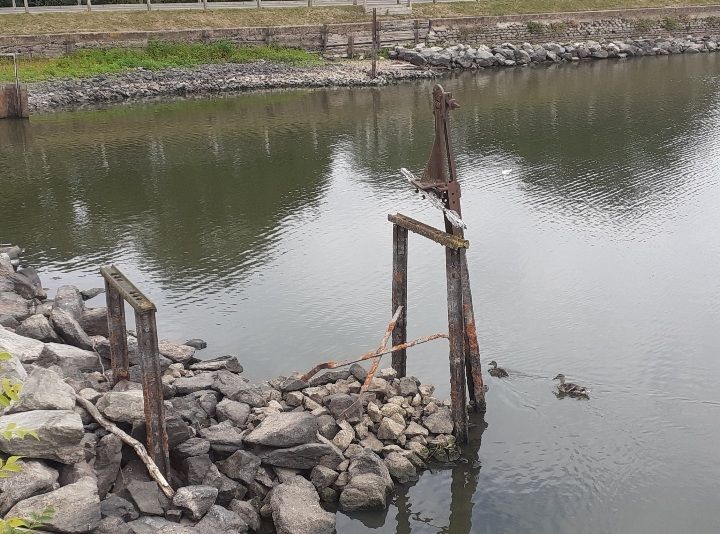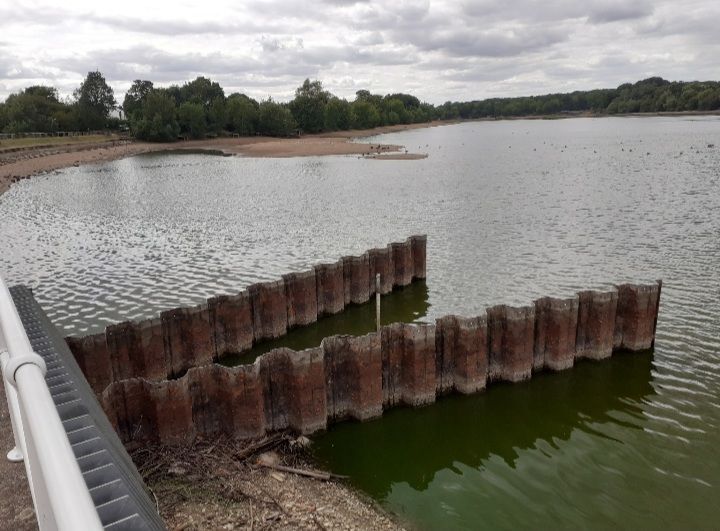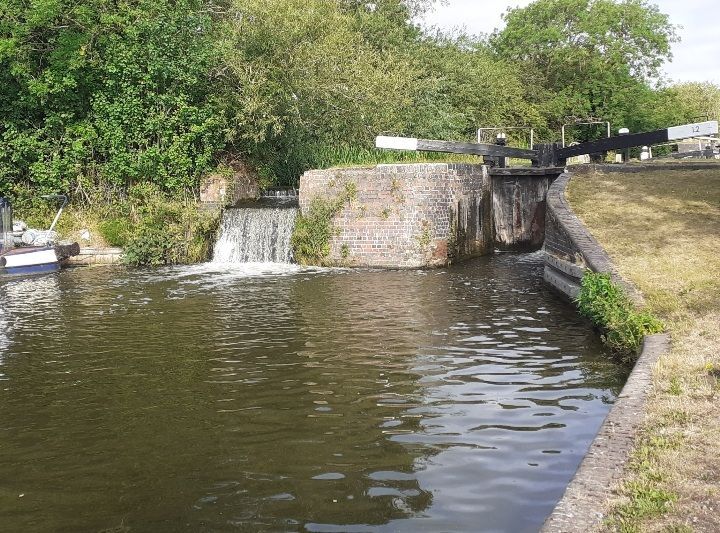

David Mack
Patron-
Posts
23,033 -
Joined
-
Last visited
-
Days Won
6
Content Type
Profiles
Forums
Events
Gallery
Blogs
Store
Everything posted by David Mack
-
CRT is a registered charity - no.1146792. https://register-of-charities.charitycommission.gov.uk/en/charity-search/-/charity-details/5027494
-
So those grub screws are indeed taking the full prop thrust in both forward and reverse gear (and the fenaflex coupling is stretching and compressing to accommodate thermal expansion). Not sure I'd be entirely happy with relying on two or three cup point grub screws to carry that load. Perhaps that is why they have failed.
-
The hire company may offer cancellation insurance (to cover the likes of death or serious injury to one of the party or a close relative, but not canal closure due to water shortage). Otherwise what do you want cover for? The boat will be insured for accidents etc.
-
But what would be the consequence of moving the boat without replacing the grub screws? The gearbox will take the prop thrust anyway, and with a free-rotating ball bearing in the plummer block there isn't likely to be much movement between the inner race and the propshaft.
-
The broader issues of the benefits system are for Government and the Treasury to sort, not CRT. There are probably less than 10,000 liveaboard boaters and only some of them are on benefits. That is a tiny number in terms of the bigger picture, and if increased CRT charges force a few more liveaboards to move onto land, or make others newly eligible for benefits the numbers involved will be background noise as far as the wider benefits system is concerned.
-
How do you reach that conclusion? Most of the non-grant income comes from utility and water development and investments and property, neither of which are related to boater activity (except perhaps for the small amount of property income which comes indirectly via boating-related businesses which CRT has has a financial connection with). Some of the 'Other' and 'Donation' income may be boating related, but since most boaters regard their licence and mooring fees as more than enough payment to CRT I don't think many contribute voluntarily as well.
-
A CRT Canals and Rivers licence allows unlimited use of all CRT's waterways when they are open. Which makes it a pretty good deal when you compare it with the extra charge you would have to pay to EA, ANT, National Trust etc. for a short term visitor licence to their waters.
-
And a postscript to the above discussion, there used to be a steam powered backpumping station at Knowle, demolished in 1933, with the site now occupied by the wide locks and sideponds.
-
I'm afraid I don't remember the detail, and I didn't take any photographs at the time. But it certainly looks like a donkey engine and a couple of air tanks.
-

The most reddest of red paints?
David Mack replied to pedroinlondon's topic in Boat Building & Maintenance
Those photos will be no more indicative of the actual colour than the paint suppliers' online samples. -
You and other boat owners collectively pay CRT less than 22% of their total income (Source: CRT Annual Report 2023/4). How much do you think should be your fair share?
-
Took about 2 hours to get through that bridge - its why we shifted the ballast forwards. While doing so we managed to draw back enough from the bridge to allow other boats to pass, but even shallower-drafted modern boats with bigger engines struggled on the mud there.
-

GU from 16th July Berko to Cow Roast, Marsworth & locks 22 & 29
David Mack replied to Twopints's topic in Stoppages
Which is presumably why only the top half of the Hatton flight is restricted. Easier for staff from the Hatton office (a few locks below the top lock) to get to. -
They should be cutaway on the underside at each end (I.e. against the hull sides and the central kelson). If they are not you really should drill some holes - at least 1/2" and preferably larger - to allow bilge water to drain towards the stern. Edited to add: Blowing up your photos, although it's not entirely clear, it does look as if you may have such cutaways.
-
I lived in Knowle during my teens, and family boats were moored at Knowle top lock. By 1976 the boats had been sold, but I was still a regular visitor to the flight. One hot 1976 day I arrived at the top of the flight to hear an amazing thumping sound coming from the direction of the bottom lock. It was coming from the small brick building on the towpath alongside the lock cottage, that I had never previously paid much attention to. The door was open and inside I found the lock keeper, Bob Knight, who had started up the two cylinder Bolinder semi-diesel engine which powered the back pump up the flight. Bob explained that the pump hadn't been used in years, but with the summit level low due to the drought he had decided to see if it could be got running again. It ran like a dream! A pulley on the shaft drove a wide flat belt which disappeared through the floor to the pump below. So successful was the pump that BW decided it should be used regularly, and the Bolinder was soon replaced with an electric motor. Bob Knight with the Bolinder at Knowle (c1978 according to the CRT archive, but I suspect may actually have been 1976). The engine had originally been installed in a Thames docks tug owned by the Regents Canal Company, but after the formation of the Grand Union Canal Company and the widening of the locks between Napton and Knowle it was installed at Knowle. I believe it is now in the museum at Ellesmere Port.
-
There seems to be some mangling of English going on. I thought health was a good thing, the opposite of illness, and so experiencing (not suffering) mental and physical health should be a desirable condition!
-
Those bearers are far too far apart to support a plywood floor, even 22mm thick. On Belfast I have transverse angles at about 2 ft centres. I put 4 longitudinal treated timber bearers down at 2 ft centres, the edge ones were 2"×3" laid flat to support narrow edge pieces of floor, the centre two were 2"×3" laid vertical, but notched over the bearers to provide the same height above the angles as the side bearers. The bearers were bolted down to the angles, the floors are woodscrewed to the bearers. That allows the use of a 4ft + 2ft floor panels (18mm ply), with narrow offcuts along the sides - you may not need these if unlike mine your hull tapers in towards the bottom. Having longitudinal timbers above transverse angles allows for longitudinal airflow in the bilges, which aids the drying out of any bilge water. Fixing transverse timber bearers above transverse angles divides the bilge space into a series of almost sealed zones, so much more difficult for any water to evaporate, with consequent risk of rusting the bottom and rotting the floor timbers. With angles as far apart as yours I would suggest at least 2" × 4" longitudinal bearers, notched to 2" over the angles to minimise the loss of headroom.
-
Whose view as to what is reasonable? The whole reason they started the mooring auctions some years ago was to find out the market value of moorings. Why no discrimination between leisure and residential? Residential boaters generally get more benefit from a mooring than leisure boaters. So why shouldn't that be reflected in what they pay? It certainly is in those marinas that offer both leisure and residential moorings.
-
Paired gates are designed and installed to seal down the mitre joint between the gates. On wide canals many narrow boaters open a single gate and scrape against the sealing face of the closed gate as they pass through. The result is that every wide lock (other than one with brand new gates) has a gap between the bottom gates 2-3 feet above the lower water level. When the lock is full water gushes out through this gap, when it's empty you can see daylight through even if the gates are fully closed. The same doesn't happen with top gates as the damage is done above upper water level. That damage, and the resultant leakage, is down to boaters, not CRT. On the River Wey use of single gates is not permitted. Perhaps CRT should require the same, although in practice it is probably unenforceable. The Avon Navigation Trust only has to maintain the locks and a few mooring sites. The river channel, weirs and bridges are all the responsibility of others. There are no reservoirs to maintain. The river upstream, tributaries, drainage outfalls and runoff from the adjoining land all provide more than enough water for navigation. There is no leakage from the channel to worry about. And it's a similar position on the River Wey. So hardly a valid comparison with CRT's network of mostly canals. Which other navigation authorities are you thinking of which apparently do a better/cheaper job than CRT? CRT are generally responsible for the management of the water space in the West India and Milwall Docks. Its a legacy role from the development of the whole area led by the London Docklands Development Corporation, now wound up, and somebody has to do it. It's a similar position in Liverpool. CRT do have some development land in the West India Docks, and it is currently undergoing large scale development, with CRT getting their share of the resulting financial benefit.
-

Possible silly question about boat draft
David Mack replied to cornishdave's topic in General Boating
No. You can show mathematically that if your boat is a rectangular box with vertical sides and ends and you place a load on one end the centre of the boat will drop by an amount determined by the load and the plan area of the boat (about 1" per ton for a full length narrow boat and proportionately more for shorter craft), and the opposite end to the load will rise by half the amount the loaded end goes down, with the draft being unchanged at the 2/3 point. i.e the boat pivots about a point 2/3 of the length from where the load is applied. In cross section a narrow boat is not far off the vertical sided box, but the ends are not. Neither is the weight of the water tank contents right on the end, but its a close enough approximation for practical purposes. Similarly filling a fuel tank in the counter round will lift the bow by half the amount the stern goes down, but since the quantity of fuel one adds at a time is generally less than a water fill the effect is not so noticeable. -
But past the top of the locks it's not so good! Level is 6" down, very slow going when we are moving and we have got stuck fast on the bottom twice within a mile. Currently shifting ballast from the stern to the bows.
-
-
Exactly. Fit an L port valve on the cold feed to your hot water system, with one output directed to the calorifier inlet connection and the other output directed to the instantaneous gas water heater. Then connect the calorifier output (after the thermostatic valve) to the instantaneous heater output and to the feed to the hot taps. You can then use the L port valve to select which hot water source is directed to the taps and shower - calorifier if it is full of hot water after a day's engine running, instantaneous heater otherwise.


